Reviews
Nicholas Ray
USA, 1954
Credits
Review by Cullen Gallagher
Posted on 27 August 2008
Source Bootleg DVD
Categories The Mystic: The Films of Nicholas Ray
“I was hoping for something new, accidental or planned, to happen. But it didn’t.”1 Nicholas Ray’s reflection on his second and final venture into television (following an early foray with a live broadcast of Sorry Wrong Number in 19452) reveals his by-now typical pessimism towards, and frustration with, commercial filmmaking—and it is also equally applicable to the protagonist’s misery in High Green Wall. Based on the short-story “The Man Who Liked Dickens” by Evelyn Waugh, the re-titled High Green Wall concerns Henty (Joseph Cotten), the last surviving member of an Amazon expedition, who wanders delirious and malnourished into the seemingly caring arms of McMaster (Thomas Gomez). An Indo-American born and raised in the jungle, he is a Kurtz of sorts, having developed a small community of natives who are his servants. Repaying McMaster’s kindness, Henty obliges to read aloud to his illiterate savior, whose favorite author is Charles Dickens. As weeks and months go by, Henty realizes that instead of being rescued he was actually trapped: like McMaster’s previous “reader,” Henty eventually realizes that escape is impossible and that he, too, will perish as a stranger in a strange land.
Broadcast as part of CBS’ General Electric Theater, the adaptation by Charles Jackson makes several crucial changes to Waugh’s original story. (In his comprehensive biography of the director, Bernard Eisenschitz suggests that it is likely that Ray did in fact have a hand in developing the teleplay3 .) The most important difference—and the one which aligns High Green Wall specifically with Ray’s other works—is the motivation for Henty’s adventure. In Waugh’s story, Henty decides to leave home only after his wife has announced she is leaving him for another man. He justifies the voyage as giving his wife time to realize the error of her ways, and the story is punctuated by fantasies of returning home to a loving wife. In the television adaptation, Henty explains it as such: “I was fed up with the jungle of the civilized world, so I thought I’d explore the real jungle.” Social discontent is something Ray’s protagonists know well, and is perhaps articulated in its rawest form by James Dean’s explosive, “You’re tearing me apart!” in Rebel Without a Cause (1955).
Nor is Ray’s Henty such the one-sided victim of his wife’s departure. “I’d failed her in so many ways,” Henty reflects in the television episode, “now I feel much better equipped to face her again.” Denied clarity, their marital conflict remains an open-ended mystery that allows the possibility that Henty is equally culpable for his present circumstance. (Perhaps Henty is a continuation of Bogart of In a Lonely Place[1950], having fled a failed relationship and a job which he despised, both of which were the result of his own self-destructive tendencies.) The irony of Henty feeling that he is “better equipped” is that he is anything but: he has exchanged one trap for another. He was no more able to find an escape from “civilized” society than he is from the jungle. Like so many of Ray’s protagonists, Henty is on the run, in search of an ideal space where he can be free of society’s restrictions and expectations. And, like those in Ray’s other films, Henty eventually discovers that no such space exists, and that one must create such an environment themselves. Bogart and Dean each pushed social boundaries past the breaking point; Henty, on the other hand, never pushed anything, but instead kept wandering until, finally, there was no place left to go. So he stopped—and the final note of capitulation is one of the most desolate endings in all of Ray’s work.
Henty’s only moment of defiance is a fitting cinematic metaphor for Ray’s own rebellious nature: frustrated with McMaster’s refusal to help him leave, Henty throws a book—the symbol of his captivity—through a screen-door. Ray’s filmmaking was an attempt at tearing down a screen of another sort. He outraged against the placidity of Hollywood conventions, of always having to compromise one’s personal expression. It is only appropriate that when Henty wants to send word of his predicament to the outside world, he tears a page from one of Dickens’ novels to give to passing traveler: both Henty and Ray attempt to find escape through narrative. And just as Henty left Boston in search of the jungle, so too would Ray go in search of “other” societies: the arctic wilderness in The Savage Innocents (1960), the rodeo in The Lusty Men(1952), the marshlands of Wind Across the Everglades (1958), and even the interior-world of teenagers in Rebel Without a Cause, are but a few of the many journeys Ray would undertake. And unlike Henty, who acquiesces to a life of confinement, Ray never accepted resignation and continued his path as cinematic explorer until his final breath (properly captured on film in Lightening Over Water [1980]).
- Bernard Eisenschitz, Nicholas Ray: An American Journey (London/Boston: Faber and Faber, 1993) 220. ↩
- Geoff Andrew, The Films of Nicholas Ray (London: BFI Publishing, 2004) 84. ↩
- Eisenschitz 221. ↩
More The Mystic: The Films of Nicholas Ray
-
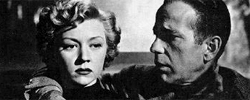
In A Lonely Place
1950 -
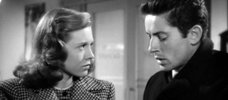
They Live By Night
1948 -
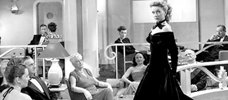
A Woman’s Secret
1949 -
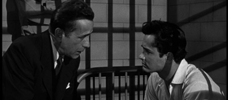
Knock on Any Door
1949 -

Born to Be Bad
1950 -
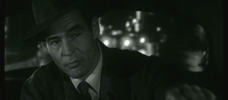
On Dangerous Ground
1952 -
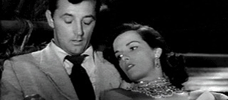
Macao
1952 -
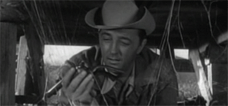
The Lusty Men
1952 -

Johnny Guitar
1954 -
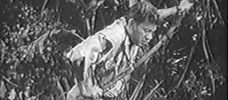
High Green Wall
1954 -
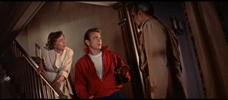
Rebel Without a Cause
1955 -
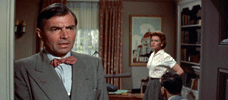
Bigger Than Life
1956 -
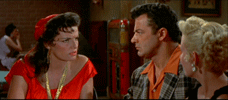
Hot Blood
1956 -

The True Story of Jesse James
1957 -
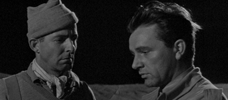
Bitter Victory
1957 -

Party Girl
1958 -

King of Kings
1961 -
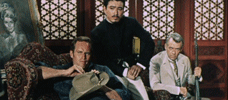
55 Days at Peking
1963 -
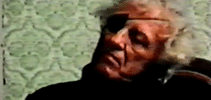
The Janitor
1974 -
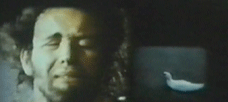
We Can’t Go Home Again
1973-1976 -
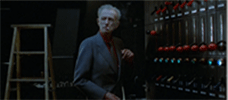
Lightning Over Water
1980
We don’t do comments anymore, but you may contact us here or find us on Twitter or Facebook.



